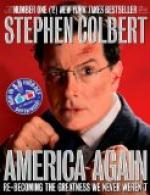Dan tried to taunt me into action, and reviewed the “kennel” with critical eyes. “Never saw a dog makin’, its own chain before,” he said to the Maluka as I sat among billows of calico and mosquito netting. But the homemaking instinct is strong in a woman, and the musterers went out west without the missus. The Dandy being back at the Bitter Springs superintending the carting of new posts for the stockyard there, the missus was left in the care of Johnny and Cheon.
“Now we shan’t be long,” said Johnny, and Cheon, believing him, expressed great admiration for Johnny, and superintended the scrubbing of the walls, while I sat and sewed, yard after yard of oversewing, as never woman sewed before.
The walls were erected on what is known as the drop-slab-panel system—upright panels formed of three-foot slabs cut from the outside slice of tree trunks, and dropped horizontally, one above the other, between grooved posts—a simple arrangement, quickly run up and artistic in appearance—outside, a horizontally fluted surface, formed by the natural curves of the timber, and inside, flat, smooth walls. As in every third panel there was a door or a window, and as the horizontal slabs stopped within two feet of the ceiling, the building was exceedingly airy, and open on all sides.
Cheon, convinced that the system was all Johnny’s was delighted with his ingenuity. But as he insisted on the walls being scrubbed as soon as they were up, and before the doors and windows were in, Johnny had one or two good duckings, and narrowly escaped many more; for lubras’ methods of scrubbing are as full of surprises as all their methods.
First soap is rubbed on the dry boards, then vigorously scrubbed into a lather with wet brushes, and after that the lather is sluiced off with artificial waterspouts whizzed up the walls from full buckets. It was while the sluicing was in progress that Johnny had to be careful; for many buckets missed their mark, and the waterspouts shot out through the doorways and window frames.
Wearing a mackintosh, I did what I could to prevent surprises, but without much success. Johnny fortunately took it all as a matter of course. “It’s all in the good cause,” he chuckled, shaking himself like a water-spaniel after a particularly bad misadventure; and described the “performance” with great zest to the Maluka when he returned. The sight of the clean walls filled the Maluka also with zeal for the cause, and in the week that followed walls sprouted with corner shelves and brackets— three wooden kerosene cases became a handy series of pigeonholes for magazines and papers. One panel in the diningroom was completely filled with bookshelves, one above the other for our coming books. Great sheets of bark, stripped by the blacks from the Ti Tree forest, were packed a foot deep above the rafters to break the heat reflected from the iron roof, while beneath it the calico ceiling was tacked up. And all the time Johnny hammered and whistled and planed, finishing the bathroom and “getting on” with the office.




